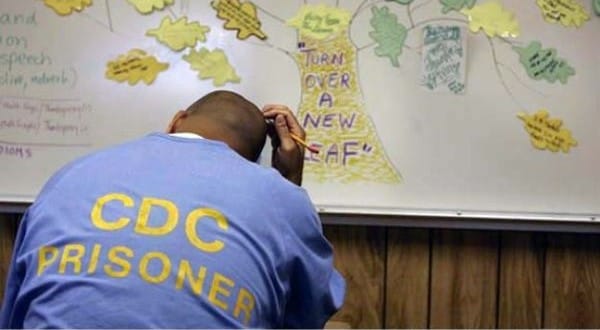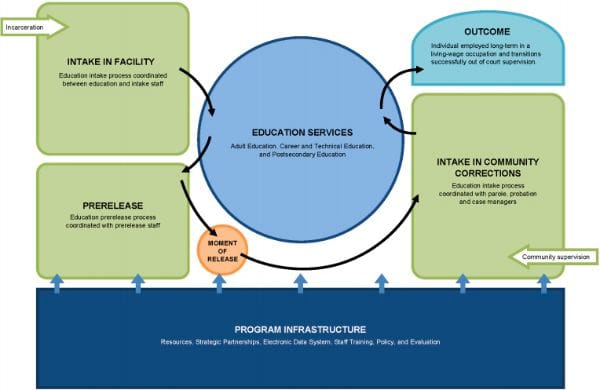Government Offers $1 Million For Workforce Reentry Education

Credit: sfgate.com, Michael Macor

Incarcerated individuals often face adversities reentering society after entanglement with the corrections system. Successful reintegration can be challenging, particularly with little to no support and, statistically, the odds are stacked against released individuals. The Department of Education announced a grant program, called "Promoting Reentry Success Through Continuity of Educational Opportunities," or PRESCEO, amounting to nearly $1 million for workforce reentry education and training.
Promoting a system and incentive for reintegration benefits the federal budget, public safety, and the individual leaving prison. In the United States, four out of every ten released prisoners commit new crimes or violate the conditions of their release. This revolving door of incarceration is known as recidivism, and it costs states around $50 billion every year. Offenders generally have low-education backgrounds and do not have the means to break the cycle of recidivism and maintain longterm stability within society.
PRESCEO plans to award two to four grants ranging from $200,000 to $400,000 for adult education programs who partner with correctional facilities. Applicants have to have the ability to connect the education provided with local communities to emphasize societal reintegration.
The announcement came at the Correctional Education Summit on Nov 19. The Department of Education also released its new adult reentry education plan for outgoing prisoners to transition successfully. The plan will try to improve educational services like tutoring, career technical training, and assisting in job placement with employers that have no criminal background restrictions.
Speaking at the summit, Attorney General Eric Holder stated:
"Expanding access to education is a proven strategy for reducing recidivism and preventing crime. By working together to support education and training programs for those rejoining our communities. The Departments of Justice and Education are helping to improve outcomes and ensure public safety."
Currently, the growing prison population strains the education opportunities for inmates. There are not enough resources to serve the number of inmates. Correctional education faces similar issues as public education with increased class sizes and minimized effectiveness. John Kern of the SEIU Local 1000 spoke out against California's correctional education model saying, "Prison classrooms resembled more of a train station than anything else, with all the trains running slowly or canceled." Last year, 800 correctional educators were laid off in California.
Not only does correctional education face a lack of resources, but there is also a lack of awareness. The PRESCEO announcement addressed awareness of opportunities:
"Those under parole or probation often do not participate in education and training programs. Possible reasons for these low participation rates include lack of or limited access to programs, limited awareness of program opportunities, reductions in services because of State budget constraints, insufficient personal motivation, and competing demands (e.g., employment) that may take precedence over pursuing education."
The PRESCEO announcement didn't shy away from the daunting statistics in which the program aims to change:
"Among the male U.S. population aged 20 to 34 without a high school credential, 1 in 3 black men, 1 in 8 white men, and 1 in 14 Hispanic men are incarcerated. Approximately 41 percent of Federal and State prisoners lack a high school credential, compared to 18 percent of the general population."
Adult education programs have until December 20 of this year to apply for PRESCEO grants. Grants are to be awarded in January 2013. The entire PRESCEO grant program can be read here. The updated Adult Reentry Model from the Department of Education can be read here. The Department also provides a graphic model of the plan:




